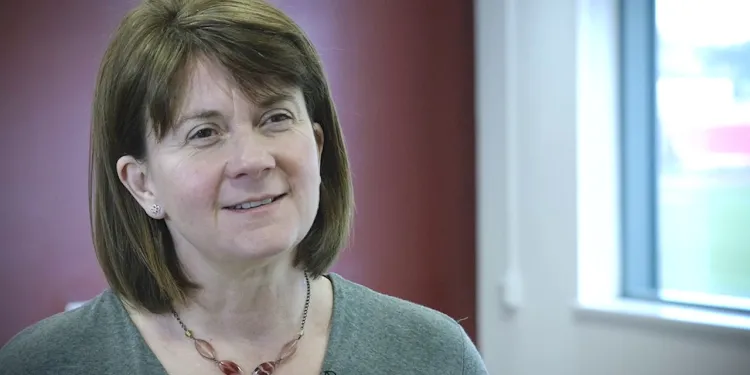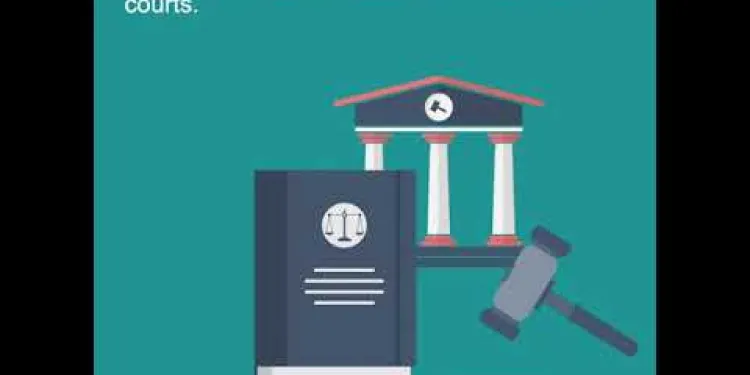
Find Help
More Items From Ergsy search
-

Can I practice my religion?
Relevance: 100%
-

Do all religions allow cremation?
Relevance: 63%
-

Can my religion exempt me from jury service?
Relevance: 42%
-

Does bereavement leave cover funerals for cultures or religions with extended mourning periods?
Relevance: 42%
-

Is honour based abuse a cultural practice?
Relevance: 35%
-

What should I do if my NHS dentist's practice closes?
Relevance: 33%
-

How can I practice first aid skills effectively?
Relevance: 31%
-

How can I modify my yoga practice during pregnancy?
Relevance: 30%
-

What is a social prescriber, and how do they support general practice?
Relevance: 28%
-

How do community helpers stay updated on best practices?
Relevance: 28%
-

Calls for Reform as Report Highlights Disparities in Sentencing Practices
Relevance: 28%
-

What storage practices should I follow for baby food?
Relevance: 26%
-

Practical strategies to support young children who stammer
Relevance: 24%
-

Are there online simulations for practicing first aid?
Relevance: 23%
-

Worried about signs that could be cancer? Contact your GP practice | NHS
Relevance: 23%
-

Social prescribing in practice: supporting social prescribing link workers
Relevance: 22%
-

Sikhism Explained
Relevance: 22%
-

Origin of Judaism - A Brief History | 5 MINUTES
Relevance: 19%
-

What Is Buddhism? A Beginner’s Guide to Buddhist Beliefs
Relevance: 18%
-

How Did Catholicism Start?
Relevance: 17%
-

How soon after death can a burial take place?
Relevance: 14%
-

Are there cultural factors in binge drinking?
Relevance: 14%
-

What can I do if I face discrimination as a gig worker?
Relevance: 13%
-

An introduction to claiming asylum in the UK
Relevance: 13%
-

Are woodland burials environmentally friendly?
Relevance: 12%
-

What is the difference between a cemetery and a churchyard?
Relevance: 12%
-

Cremation and Ash Interment
Relevance: 12%
-

What is cremation?
Relevance: 11%
-

The True History of the Catholic Church That No One Told You
Relevance: 11%
-

History of Islam in Brief | 5 Minutes
Relevance: 11%
-

How soon after the funeral can the cremation take place?
Relevance: 10%
-

How do I find an NHS dentist near me?
Relevance: 10%
-

Bowel Cancer
Relevance: 10%
-

What is Honour Based Abuse?
Relevance: 10%
-

How can I provide feedback about my NHS dental care?
Relevance: 9%
-

Who founded homeopathy?
Relevance: 9%
-

How do I know if my dentist offers NHS treatment?
Relevance: 9%
-

What types of nursing degrees can I pursue?
Relevance: 9%
-

The Human Rights Act
Relevance: 9%
-

What happens if I miss my NHS dental appointment?
Relevance: 9%
Introduction
In the United Kingdom, the right to practice one's religion is a fundamental freedom protected by law. This freedom is an essential aspect of a diverse, multicultural society, allowing individuals and communities to maintain their religious identities and traditions. Understanding how these rights are protected and what they entail is crucial for anyone residing in or visiting the UK.
Legal Protections for Religious Freedom
The right to practice religion in the UK is primarily upheld by the Human Rights Act 1998, which incorporates the European Convention on Human Rights into UK law. Article 9 of the Convention guarantees the right to freedom of thought, conscience, and religion. This right includes the freedom to change one's religion or beliefs and the freedom to manifest one's religion or beliefs, either alone or in community with others, in public or private, through worship, teaching, practice, and observance.
Limitations and Responsibilities
Although the UK protects religious freedom, it is important to note that this right is not absolute. The law permits certain limitations on religious practices to protect public safety, health, and the rights and freedoms of others. For instance, practices that might infringe upon others' rights or that contravene public safety laws can be regulated. This ensures a balance between individual freedoms and the broader interests of society.
Religious Institutions and Organizations
The UK is home to a wide array of religious institutions and organizations, ranging from Christian churches to mosques, synagogues, temples, and other places of worship associated with numerous world religions. These institutions are free to operate, providing spiritual guidance, community activities, and support to their members. The government recognizes the importance of these organizations in fostering community cohesion and supporting individual rights to worship.
Religious Discrimination
In the UK, discrimination based on religion or belief in the workplace or wider society is prohibited under the Equality Act 2010. This Act ensures that individuals are treated equally, regardless of their religious background, and provides a legal framework to challenge discrimination. Employers and public service providers must respect religious diversity and accommodate religious practices as far as is reasonable.
Conclusion
Overall, the UK provides a strong legal framework to support the practice of religion, ensuring that individuals can freely express their beliefs while maintaining a balance with the rights and well-being of the community. The protection against religious discrimination further strengthens this framework, making the UK a diverse and inclusive environment for people of all faiths.
Introduction
In the United Kingdom, people have the right to follow their own religion. This is an important freedom that the law protects. It helps people from different backgrounds live together peacefully. Understanding how these rights work is important for everyone living in or visiting the UK.
Legal Protections for Religious Freedom
The Human Rights Act 1998 is a law that protects the right to practice religion in the UK. This law includes rules from the European Convention on Human Rights. It says people can think and believe what they want. They can follow their religion alone or with others, both in public and private. This includes worshiping, teaching, and practicing their faith.
Limitations and Responsibilities
Even though the UK protects religious freedom, there are some rules. Sometimes, religious practices can be limited. This is to keep everyone safe and healthy. For example, if a religious practice is unsafe or unfair to others, the law can control it. This helps balance individual freedoms with the safety of society.
Religious Institutions and Organizations
The UK has many religious places, like churches, mosques, synagogues, and temples. These places help people with spiritual needs and community activities. The government knows these places are important for community and individual rights to worship.
Religious Discrimination
The Equality Act 2010 is a law in the UK that stops discrimination based on religion. This means everyone should be treated fairly, no matter their religion. If someone faces unfair treatment because of their religion at work or in public, the law can help them. Employers and public services should respect and accommodate religious practices as much as possible.
Conclusion
The UK has strong laws to help people practice their religion freely. These laws also stop discrimination, making the UK an inclusive place for people of all faiths. This balance helps protect individual rights and supports community well-being.
Frequently Asked Questions
Can I practice my religion in public?
Yes, in most countries you can practice your religion in public, as long as it does not interfere with public order or the rights of others.
Do I need permission to practice my religion?
Typically, you do not need permission to practice your religion privately. However, certain public practices or gatherings may require permits depending on local laws.
Are there any restrictions on practicing religion?
Some countries may have restrictions on certain religious practices. It's important to be aware of local laws and regulations.
Can children practice a different religion from their parents?
In many places, children have the right to their own religious beliefs, but family dynamics and laws regarding minors can affect this.
Are religious holidays recognized by law?
Recognition of religious holidays varies by country. Some countries may officially recognize holidays of their majority religion, while others may acknowledge multiple or none.
Can I wear religious symbols in the workplace?
This depends on workplace policies and local laws. Some regions protect religious expression in dress, whereas others allow restrictions.
Can I change my religion?
In many countries, individuals have the freedom to change their religion, though social and legal ramifications can vary widely.
Is it legal to evangelize or convert others?
In some countries, proselytizing is legal, but others may have restrictions or bans on converting others.
Can I practice more than one religion?
Individuals may choose to practice multiple religions, but acceptance of this varies by religious and cultural context.
Are there protections against religious discrimination?
Many countries have laws protecting against religious discrimination in areas like employment, education, and housing.
Can I form a new religious group?
The ability to form a new religious group often depends on local laws, which may require registration or adhere to specific legal criteria.
Do I have to declare my religion to authorities?
Some countries require religious affiliation to be declared for census or identification documents, but this varies widely.
Can my employer require me to work on my religious holy days?
Employers may require work on holy days, but many regions require reasonable accommodation for religious observances.
Can I display religious items in my home?
Yes, in your private space you have the right to display religious items.
Are there age restrictions for attending religious services?
Generally, there are no age restrictions, but parents or guardians typically make decisions for minors.
Can I discuss my religion at school?
This depends on school policies and the country's laws regarding religious expression in educational settings.
Is religious education mandatory?
In some countries, religious education is included in school curricula, but attendance can often be opted out based on parental consent.
Can I get time off for religious rituals?
Many employers offer accommodations for religious observances, but this can vary by country and employer policy.
How do international laws protect religious freedom?
International laws, such as those by the UN, aim to protect religious freedom, but enforcement varies by country.
Can government impose regulations on religious practices?
Governments can impose regulations to balance religious practices with public safety, health, and order.
Can I follow my religion outside my home?
Yes, you can. Here are some ways to help you:
- Join a local group of people who share your beliefs. They can help you.
- Find a nearby place where people meet to practice the same religion. It could be a church, mosque, temple, or other place.
- Talk to family and friends about your beliefs.
Remember, you have the right to follow your religion. It's okay to ask for help if you need it.
Yes, in most countries, you can show your religion in public. But you must make sure it does not disturb others or break the rules.
Can I practice my religion without asking for permission?
You can follow your religion without needing permission.
If you have questions, you can talk to someone you trust, like a teacher or family member.
Using picture books or talking with others can also help you understand more about your religion.
You can usually practice your religion at home without asking anyone first. But if you want to have a big meeting or event in public, you might need to check the local laws. Sometimes, you need permission or a special paper called a "permit."
Can you practice any religion you want?
In some countries, there are rules about how people can do their religious activities. It is important to know what is allowed and not allowed.
Can kids choose a different religion from their parents?
Yes, kids can learn about and choose a different religion than their parents. Here are some tips to help:
- **Talk to your parents:** Have a kind conversation with your parents about how you feel.
- **Read books:** Look for books that explain different religions in a way that is easy to understand.
- **Ask questions:** If you meet people from different religions, ask them questions to learn more.
- **Watch videos:** Find videos or shows that talk about different religions to help you learn more.
In lots of places, kids can choose their own religion. But sometimes, their family rules and some laws can change this.
Do laws say religious holidays are okay?
Different countries have different rules for religious holidays. Some countries celebrate the holidays of their main religion. Other countries might celebrate holidays from lots of different religions, or they might not celebrate any at all.
Can I wear religious symbols at work?
You can wear a necklace, bracelet, or clothes that show your religion at work. But some jobs have rules about safety or uniforms. Check your work’s rules to be sure.
Here are some tips to help:
- Ask your boss or person in charge if you are unsure about wearing religious symbols.
- If you don’t understand the rules, ask someone to explain them to you.
This answer depends on where you work and the rules they have. Some places have rules that let people wear clothes for their religion. Other places might say some clothes are not okay.
Can I choose a new religion?
Yes, you can choose a new religion if you want to. It is your choice.
Here are some tips to help you:
- Talk to someone you trust. They can listen and give advice.
- Read simple books or watch videos about different religions.
- Visit places of worship to learn more.
- Take your time. It's okay to think about it for a while.
In lots of countries, people can choose to follow a different religion. But this can cause different problems. Some places have laws about this, and sometimes other people might not like it.
Can you talk about your religion or ask someone to join it?
To help you understand better: - **Ask someone you trust for help.** This could be a teacher, family member, or friend. - **Use simple words.** Try using words you know to explain things. - **Take your time.** Go slow and read each part carefully. - **Draw pictures.** Pictures can help you understand ideas better. - **Find videos.** Watching videos about the topic can help too.In some countries, it is okay to try and get people to join your religion. But in other places, there are rules or bans that stop you from doing that.
Can I follow more than one religion?
Yes, you can. Some people like to follow teachings and customs from different religions. This is okay.
Try these tips to help you:
- Read simple books about each religion.
- Talk to people who know about the religions you like.
- Join groups where they teach about different religions.
- Use websites that explain religions in simple words.
Some people decide to follow more than one religion. But whether this is okay can change depending on the religion and culture.
Can people be protected from unfair treatment because of their religion?
A lot of countries have rules to stop unfair treatment because of someone's religion. These rules help in places like jobs, schools, and homes.
Can I start a new religion?
You can make a new religion if you want to. Here are some things to think about:
- Talk to friends or family to get ideas and support.
- Think about what beliefs and rules are important to you.
- Use pictures or drawings to explain your ideas.
- Write down your ideas in a simple way.
- You can ask for help from a teacher or a helper.
Remember, it’s okay to have your own special beliefs!
To start a new religious group, you need to follow the rules. These rules can be different depending on where you live. Some places might ask you to fill out special forms or meet certain conditions.
Do I need to tell people in charge about my religion?
If you are unsure, you can ask someone for help. You can also use pictures or videos to understand better.
In some countries, people have to say what their religion is for things like the census or ID cards. But this is different in each place.
Do I have to work on my special religious days?
Sometimes bosses ask people to work on special religious days. But in many places, there are rules that say bosses should try to make it easier for people to follow their religion.
Can I show religious items in my home?
Yes, you can show things from your religion in your home. It's your choice.
If you want support, you can:
- Ask a friend or family member for advice.
- Talk to someone from your place of worship.
- Read books that help you understand more.
Showing religious items can be special and important for you and your family.
Yes, you can show your religious things at home.
Can anyone go to religious services?
Are there rules about how old you have to be to go to religious services?
Here are some things that might help:
- Ask an adult if you are unsure.
- Some places may have rules for children. Check with them.
- It's good to go with a family member or friend.
Usually, there is no age limit. But, parents or guardians usually make choices for children.
Can I talk about my religion at school?
It is okay to talk about your religion at school. You can share what you believe with your friends. Just make sure to respect others' beliefs too.
If you find it difficult to talk about your religion, you can:
- Ask a teacher or school counselor for advice.
- Use pictures or drawings to help explain your ideas.
- Practice what you want to say before talking to others.
Always be kind and listen when others talk about their religions too.
This depends on what rules the school has and what the laws in the country say about showing your religion at school.
Do you have to take religious lessons in school?
In some countries, children learn about religion at school. But, if parents say so, kids can choose not to go to these classes.
Can I take a break for my religion?
You can ask your boss if you need a break for your religion.
Tell your boss why you need the time off.
Some tools to help explain might be:
- Talk to someone who helps with work and rules.
- Use a calendar to show dates you need.
Many workplaces help people with their religious practices. But this can be different depending on where you are and the workplace rules.
How do laws around the world keep people safe to follow their religion?
World rules, like the ones made by the UN, try to keep people free to have their own religion. But different countries follow these rules in different ways.
Can the government make rules about religious activities?
Governments make rules to keep everyone safe. They try to make sure people can follow their religions safely without hurting anyone. These rules help keep people healthy and happy.
Useful Links
This website offers general information and is not a substitute for professional advice.
Always seek guidance from qualified professionals.
If you have any medical concerns or need urgent help, contact a healthcare professional or emergency services immediately.
Some of this content was generated with AI assistance. We’ve done our best to keep it accurate, helpful, and human-friendly.
- Ergsy carfully checks the information in the videos we provide here.
- Videos shown by Youtube after a video has completed, have NOT been reviewed by ERGSY.
- To view, click the arrow in centre of video.
- Most of the videos you find here will have subtitles and/or closed captions available.
- You may need to turn these on, and choose your preferred language.
- Go to the video you'd like to watch.
- If closed captions (CC) are available, settings will be visible on the bottom right of the video player.
- To turn on Captions, click settings .
- To turn off Captions, click settings again.
More Items From Ergsy search
-

Can I practice my religion?
Relevance: 100%
-

Do all religions allow cremation?
Relevance: 63%
-

Can my religion exempt me from jury service?
Relevance: 42%
-

Does bereavement leave cover funerals for cultures or religions with extended mourning periods?
Relevance: 42%
-

Is honour based abuse a cultural practice?
Relevance: 35%
-

What should I do if my NHS dentist's practice closes?
Relevance: 33%
-

How can I practice first aid skills effectively?
Relevance: 31%
-

How can I modify my yoga practice during pregnancy?
Relevance: 30%
-

What is a social prescriber, and how do they support general practice?
Relevance: 28%
-

How do community helpers stay updated on best practices?
Relevance: 28%
-

Calls for Reform as Report Highlights Disparities in Sentencing Practices
Relevance: 28%
-

What storage practices should I follow for baby food?
Relevance: 26%
-

Practical strategies to support young children who stammer
Relevance: 24%
-

Are there online simulations for practicing first aid?
Relevance: 23%
-

Worried about signs that could be cancer? Contact your GP practice | NHS
Relevance: 23%
-

Social prescribing in practice: supporting social prescribing link workers
Relevance: 22%
-

Sikhism Explained
Relevance: 22%
-

Origin of Judaism - A Brief History | 5 MINUTES
Relevance: 19%
-

What Is Buddhism? A Beginner’s Guide to Buddhist Beliefs
Relevance: 18%
-

How Did Catholicism Start?
Relevance: 17%
-

How soon after death can a burial take place?
Relevance: 14%
-

Are there cultural factors in binge drinking?
Relevance: 14%
-

What can I do if I face discrimination as a gig worker?
Relevance: 13%
-

An introduction to claiming asylum in the UK
Relevance: 13%
-

Are woodland burials environmentally friendly?
Relevance: 12%
-

What is the difference between a cemetery and a churchyard?
Relevance: 12%
-

Cremation and Ash Interment
Relevance: 12%
-

What is cremation?
Relevance: 11%
-

The True History of the Catholic Church That No One Told You
Relevance: 11%
-

History of Islam in Brief | 5 Minutes
Relevance: 11%
-

How soon after the funeral can the cremation take place?
Relevance: 10%
-

How do I find an NHS dentist near me?
Relevance: 10%
-

Bowel Cancer
Relevance: 10%
-

What is Honour Based Abuse?
Relevance: 10%
-

How can I provide feedback about my NHS dental care?
Relevance: 9%
-

Who founded homeopathy?
Relevance: 9%
-

How do I know if my dentist offers NHS treatment?
Relevance: 9%
-

What types of nursing degrees can I pursue?
Relevance: 9%
-

The Human Rights Act
Relevance: 9%
-

What happens if I miss my NHS dental appointment?
Relevance: 9%


